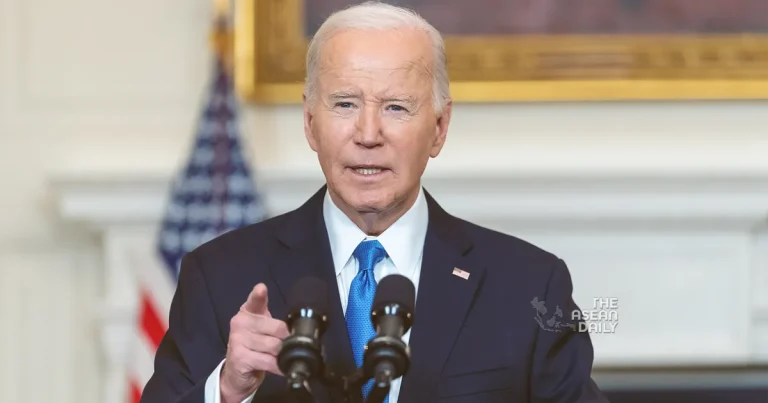27-4-2024 (KYIV) In a significant escalation of the ongoing conflict between Ukraine and Russia, the United States has secretly provided Ukrainian armed forces with long-range ballistic missiles, which have already been used to strike targets deep within Russian territory, according to U.S. officials. This covert move by the Biden administration marks a decisive shift in the nature of American military support for Ukraine, potentially exacerbating tensions with Moscow.
The delivery of the long-range Army Tactical Missile System (ATACMS) was authorized by President Joe Biden last month as part of a $300 million arms package. According to reports, Kyiv has begun putting these advanced missiles to use in recent days, striking a Russian military airfield in Crimea last week and targeting Russian forces in another occupied area overnight.
Further bolstering Ukraine’s offensive capabilities, more of the U.S.-made missiles will be provided as part of an additional arms and aid package worth $95 billion, which Biden pledged would be dispatched “within hours” after signing the national security appropriations bill.
During a press conference at the White House on Wednesday, the president’s national security adviser, Jake Sullivan, confirmed that Biden had put his signature to a “very substantial drawdown package” immediately after signing the long-awaited legislation. The package, Sullivan revealed, would include “urgently needed artillery” and ammunition for the HIMARS rocket system, as well as “more armored vehicles, Javelins, Stingers, and air defense interceptors, among other things,” all of which were “going to start moving immediately to make up for lost time at this critical moment.”
In a significant revelation, Sullivan acknowledged that a “significant number” of ATACMS missiles had been dispatched on orders from Biden in February “for use inside Ukraine sovereign territory.” He attributed the decision to allow Ukrainian forces the use of these advanced missiles as a response to Russia acquiring and using North Korean ballistic missiles in attacks on Ukrainian civilian infrastructure.
“What we have seen from the Russians is their willingness to accept long-range missiles from other countries, specifically North Korea. They have used those in the battlefield. They have used them to attack Ukrainian civilians as well,” Sullivan stated. “So from our perspective… being able to step up and provide our own capabilities to Ukraine as partners of ours have… we think it’s appropriate to do at this moment. We think it is a good capability in this phase of the conflict for Ukraine.”
The president himself addressed reporters from the White House State Dining Room, hailing the approval of the defense aid package as “a good day for America… a good day for Europe,” and “for world peace, for real.” He emphasized that the legislation would “make America safer” and “make the world safer” while continuing “American leadership in the world.”
“It gives vital support to America’s partners… so they can defend themselves against threats to their sovereignty, and the lives and freedom of their citizens,” Biden said, adding that the new spending law was “an investment in our own security, because when our allies are stronger… we are stronger.”
The legislation also includes funds for humanitarian assistance to civilians in Gaza, although Biden declined to answer questions specifically about Gaza during the press conference.
The president’s signature on the supplemental spending legislation for Ukraine put an end to a months-long blockade staged by Republicans in Congress, who had threatened to remove House Speaker Mike Johnson from his post if he allowed a vote on any bills that might fund Ukrainian defense needs.
In addition to providing roughly $61 billion for Ukraine and replenishing American weapons stockpiles, the bill allocates $26 billion for Israel and Gaza, including $4 billion for Israel’s missile defense systems and $9 billion intended for humanitarian assistance to Gaza.
Biden expressed gratitude to congressional leaders from both parties for their efforts in pushing the bill through, stating, “When it came time to stand with Ukraine and Israel and help the people of Gaza, we did that as well. At the end of the day, most of us — whether we’re Democrats, Republicans or independents — believe that America must stand up for what is right.”




